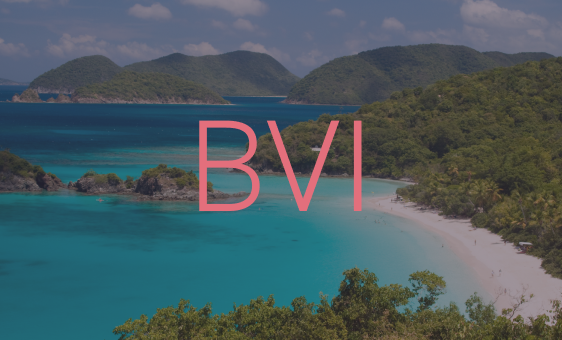In Parles .A.S. et al v Winsley Finance Limited (Parles)[1], Mangatal J was recently called upon to consider the boundaries to the Court’s power to grant “Chabra relief”.

That form of relief, derived from the English decision in T.S.B. Private Bank International S.A. v. Chabra[2] decided that the Court had power to restrain a third party (a so-called NCAD) from dealing with its assets, where those assets might be available to meet a judgment against the cause of action defendant (the CAD).
Chabra relief is typically available where:
1. it supports or is an ancillary proceeding to a substantive claim or intended claim, against the CAD;
2. there is a good reason to suppose that assets in the possession of the NCAD would be amenable to satisfy a judgment or enforcement mechanism;
3. there is a real risk that the assets held by the NCAD are at risk of dissipation;
4. the Court is able to join or has joined the third party to the substantive proceedings – a task which would appear to be made easier by forthcoming changes to the Civil Procedure Rules (see our article HERE);
5. it is just and convenient for the Court to grant such an injunction.
Factual Background
Winsley Finance Limited (Winsley) was a BVI company which had successfully sold a long range missile system to the Croatian Government. The sole shareholder of Winsley was a Mr Pernicka until at least February 2022. At that stage, Mr Pernicka claims to have divested himself of his shareholding in Winsley in a transfer which one of the Applicants (Parles) alleged to have been a sham.
Parles’ claim was that alongside a Mr Perner (the Applicants), they were owed a total of around $9.5m by Mr Pernicka. Parles alleged that it extended a loan, guaranteed by Mr. Pernicka, for the purpose of enabling the settlement of a historic legal claim against the Croatian Government for the sum of $200million in respect of missiles delivered in 1995 (the Croatian Claim). Mr. Perner also loaned funds to Mr. Pernicka in early 2010, which were acknowledged in two separate notarial deeds signed by Mr. Pernicka in 2018 and 2022. The Applicants initially obtained injunctive relief to restrain dissipation of $1.2m, which would have protected significantly more than the total value of their claims. By the return date, a Mr. Kabátek and a Mr. Rybár (the Proposed Applicants) sought to be joined to the proceedings, claiming to have significant claims against Mr Pernicka, bringing the total debts to around $12m. It was accepted by the parties that Winsley’s only asset was the Croatian Claim.
In Czechnia Parles sought and obtained a bankruptcy order against Mr Pernicka and Mr Perner applied for (and obtained) the appointment of an “Exekutor”, a form of relief akin to the appointment of a receiver. Both of the Proposed Applicants, along with the Applicants, submitted claims in the Czech bankruptcy proceedings.
Decision
From the summary given above, it can be seen that Winsley was alleged to have been an asset of Mr Pernicka. However, Mr Pernicka had been made the subject of a bankruptcy order, in proceedings to which both of the Applicants had submitted. The question which arose was whether or not the Court had the power to grant Chabra relief on the application of an unsecured creditor in aid of intended or extant insolvency proceedings.
Section 24A of the Eastern Caribbean Supreme Court Act was enacted to reverse the effect of the decision of the Court of Appeal in Broad Idea v. Convoy Collateral[3], which decision was itself later reversed by the Privy Council[4]. Section 24A permits the Court to grant injunctive relief in support of foreign proceedings, a jurisdiction which the Privy Council held runs alongside the Court’s common law jurisdiction as (correctly) identified by Bannister J in Black Swan v. Harvest View[5].
The Court held that:
- The proceedings brought by Mr Perner which resulted in the appointment of the Exekutor, and the foreign bankruptcy proceedings initiated by Parles, were both proceedings which engaged the Court’s jurisdiction under Section 24A to grant relief in support of them.
- A cause of action is no longer required to support an application for injunctive relief, but there would usually be a process which would result in some form of judgment or order of the Court which would require the payment of money. Put another way, the Court needs to be satisfied that “some process, ultimately enforceable by the courts, is or may be available to the judgment creditor as a consequence of a judgment against that actual or potential judgment debtor, pursuant to which, whether by appointment of a liquidator, trustee in bankruptcy, receiver or otherwise, the third party may be obliged to disgorge property or otherwise contribute to the funds or property of the judgment debtor to help satisfy the judgment against the judgment debtor.”
- Chabra relief was, at least as a matter of jurisdiction, available in support of foreign insolvency proceedings but that as a matter of discretion it would usually be appropriate that the application would be made by a liquidator or a provisional liquidator, and not by an unsecured creditor. It was only in exceptional circumstances that relief should be available to an unsecured creditor, on the basis that it was the officeholder was best placed to make the judgment as to whether or not an application for relief was appropriate.
It was relevant that the Proposed Applicants had submitted to the bankruptcy process. Although the Applicants had also submitted to the bankruptcy process, the injunctions which they had obtained were continued.
Comment
The decision in Parles is a useful summary of the BVI Court’s approach to the ability of unsecured creditors to apply for Chabra relief in support of intended liquidations, existing insolvency, or bankruptcy proceedings.
It is clear from the Court’s decision that whilst the usual approach will be that official office holders are the most appropriate individuals to request Chabra relief, the Court is willing to consider granting relief in exceptional circumstances to an unsecured creditor. To the extent that exceptional circumstances were found to exist in Parles, it is likely that this finding arose from an order of the Czech Court which required the Bankruptcy Trustee to participate in the BVI proceedings to protect the bankruptcy estate’s claims to the shares in Winsley, even though the Trustee did not in fact do so.
The question as to whether a foreign officeholder can in fact bring an application in the BVI is likely to be relevant to future applications. On the facts in Parles, it is possible that the Exekutor would have been entitled to apply for recognition of his appointment pursuant to the jurisdiction recognized in Schemmer v. Property Resources[6]. By contrast, whilst the trustee in bankruptcy was accepted to have, at most, an entitlement to recognition, it was agreed that he had no entitlement to the Court’s assistance: Net International v Erez[7]. In future cases, should the Court be more willing to act on the application of an unsecured creditor where the officeholder is unable to bring a successful application? Or should it take the view that since the legislature has not conferred upon the officeholder a right to seek assistance, relief should not be available at the suit of the unsecured creditor either? It is suggested that the Court is more likely to take the former of those two approaches, at any rate where the application is supported by the Trustee.
[1] BVIHCM2022/0123
[2] [1992] 1 WLR 231
[3] BVIHCMAP 2019/0026
[4] [2021] UKPC 24
[5] BVIHCV 2009/399
[6] [1975] Ch 273
[7] BVIHCMAP 2020/0010














